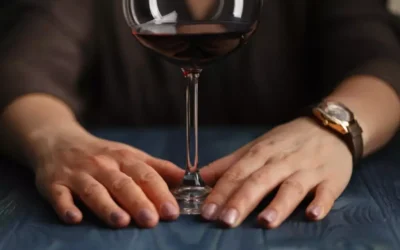In this study, reports of trauma exposure had a small relationship with PTSD symptoms, a finding also reported in other college student samples (e.g., Frazier et al., 2009). As therapists, it’s important for us to keep in mind that addiction in fact progressively robs individuals of their “spirituality.” Spirituality has some connection to religious experience, to be sure. However, if we define spirituality more broadly as the values and priorities we https://ecosoberhouse.com/ live by, along with our important relationships and the degree to which we feel we have a place and purpose in the world, it’s easy to see how addiction progressively erodes all of these things. With this in mind, 12-step fellowships can rightly be called spiritual because of the values, beliefs, and activities they advocate. These values include honesty and humility (as opposed to arrogance) and behaviors such as altruism and prayer/meditation.
Understanding the Concept of Spiritual Malady
- If we’re serious about our recovery, if we really want to experience freedom from these behaviors that keep us in bondage, we have to be rigorously honest with our answers.
- Sometimes it’s easier to admit our resentments against a stranger or co-worker than someone in our own family.
- Spiritual Discontent as partial mediator of the relationship between trauma exposure and PTSD symptoms, controlling for baseline PTSD symptoms.
- One area where spiritual maladies often come to the forefront is in addiction and substance abuse.
- What activities or habits have caused harm to my physical health?
Those of you who have been in Celebrate Recovery (CR) for a while know that our 12-steps are exactly modeled on the 12 steps of Alcoholics Anonymous. This is a proven process has helped literally millions of people all over the world recover from addictions and compulsive behaviors. The difference with CR is that we specifically acknowledge Jesus Christ as the Higher Power that can restore us. If you don’t believe in Jesus, or you’re not sure what you think about Him, that’s okay. No matter where you are in your spiritual journey, you’re welcome here, and you’ll find help and acceptance. 2Three participants did not report the number of months since the most stressful or distressing event occurred.
Examining the Impact of Spiritual Maladies on Personal Relationships
- This “fourth dimension”, which we find out in the 10th Step is the “world of the Spirit”, takes us beyond the physical, mental, and emotional dimensions of life — and eliminates the selfishness (ego) of the “spiritual malady.” The term “spiritual malady” does not mean that our “spirit” is sick.
- As therapists, it’s important for us to keep in mind that addiction in fact progressively robs individuals of their “spirituality.” Spirituality has some connection to religious experience, to be sure.
We statistically addressed these limitations to the extent possible by transforming the variables and using non-parametric procedures, and results suggest that even low levels of struggle can have important implications for post-traumatic distress. Spiritual Discontent as partial mediator of the relationship between trauma exposure and PTSD symptoms, controlling for baseline PTSD symptoms. Although spiritual awakenings are often part of the recovery process, obviously they are far from unique to people in recovery. Such awakenings need not involve religion or “finding God.” In a general sense the experience relates to recognizing and beginning to internalize a connection with that which is beyond self.

Want to display this recovery calculator on your own web page?
- Spiritual maladies can manifest in numerous ways and affect various aspects of our lives, including mental, emotional, and physical well-being.
- While religion is often helpful in times of stress, it can also be a source of stress if religious beliefs or attributions suggest maladaptive ways of understanding an event.
- When individuals are grappling with spiritual imbalances, it can make it difficult to be fully present in relationships and establish meaningful connections with others.
- We somehow think this is freedom, but we’re really becoming a slave to our own desires.
- Future studies should measure baseline spiritual struggle, to examine whether change in struggle predicts change in PTSD.
In fact, spiritual struggle has been linked to PTSD symptoms in a variety of trauma-exposed samples (e.g., Aflakseir & Coleman, 2009; Conners, Whiteside-Mansell, & Sherman, 2006; Harris et al., 2008); however, knowledge in this area thus far is limited to cross-sectional findings. The present study aims to advance understanding of how spiritual struggle relates to PTSD symptoms. The prospective design illuminates how spiritual struggle in response to a trauma, as compared to a non-traumatic stressful event, relates to the development and maintenance of PTSD symptoms. Specifically, struggle and its separate components are investigated as potential mediators of the relationship between trauma and PTSD. The analyses control for pre-event PTSD symptoms to allow for examination of change in PTSD symptoms in response to the index event. The subscales of spiritual struggle parallel not only negatively-valenced cognitive content, but also cognitive processes for reducing distress after trauma.
- For instance, attributing the event to God’s control may be an effort to reduce distress by compensating for a perceived lack of personal control; however, this attribution will only reduce anxiety if God is benevolent (Kay, Gaucher, Napier, Callan, & Laurin, 2008).
- Practices such as meditation, prayer, or connecting with supportive spiritual communities can offer solace, guidance, and a sense of connection to something greater than oneself.
- Clinicians working with trauma victims should be aware of the possible relevance of spiritual struggle in clients’ interpretation of the event and subsequent recovery.
- I can manage my spiritual malady or emotional dysfunction, I have the tools to do so.
- The huge burden that humans bear is the ability to contemplate our own annihilation—death.
- At Time 1, participants reported levels of psychological distress using the PTSD Checklist-Civilian (PCL; Blanchard, Jones-Alexander, Buckley, & Forneris, 1996), a widely used self-report measure that corresponds with diagnostic criteria for PTSD.
Moreover, studies of spiritual struggle and PTSD to date have been cross sectional, precluding the inference of causal direction in the relationships among trauma, PTSD symptoms, and spiritual struggle (e.g., .Bradley, Schwartz, & Kaslow, 2005). Like negative post-traumatic cognitions about the self, others, and the world, the construct of spiritual struggle represents negative religious cognitions about the self, God, and the world, and may thereby lead to PTSD symptoms. Spiritual struggle consists of maladaptive religious cognitions about the cause of, responsibility for, and future implications of stressful events, paralleling secular cognitions known to be factors in the development and maintenance of PTSD symptoms (e.g., Brewin & Holmes, 2003).
» Rev. Bryan Massingale Shares Importance of ‘Spirituality for Racial Justice’ Within the Church – Fairfield Mirror
» Rev. Bryan Massingale Shares Importance of ‘Spirituality for Racial Justice’ Within the Church.
Posted: Wed, 08 Feb 2023 08:00:00 GMT [source]
Post-traumatic stress disorder (PTSD) characterizes the reexperiencing, avoidance, hyperarousal, and emotional numbing symptoms that may persist in response to traumatic events. When we are under threat, we create spiritual malady a bias towards negative, selfish, aggressive and prejudiced thoughts. When being chased by a tiger it is helpful to think “danger”, react quickly, judge without contemplation, defend and protect one’s self.
A Spiritual Inventory

Leave a Reply
You must be logged in to post a comment.